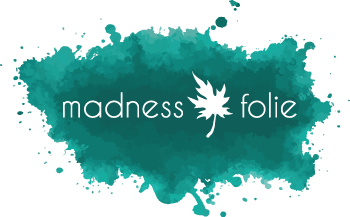Toronto Activists Project
In the spring of 2009, historian Megan Davies partnered with secondary student and videographer Willie Willis to interview a number of Toronto activists: Pat Capponi, Paul Quinn, Geoffrey Reaume, David Reville, Mel Stark, and Don Weitz. Their oral histories set out the serious obstacles former patients faced as they moved from institution to community – the stigmatized identities of people who had been in the mental health system, the poor housing that awaited them as they left residential facilities, and the lack of legal rights and community and social supports. The people interviewed for this project each did their part in advocating for change and creating community and points of positive identity for psychiatric survivors.
Unfortunately, the quality of many of these videos is very low and they can only be viewed on a small screen. The only good quality interviews that have survived are Paul Quinn’s and David Reville’s, but a series of good quality “clips” taken from the original footage by filmmaker Lily Ross Millard are included alongside the full interviews for each individual.
Mad Activism in Toronto began in the 1970s. Inspired by a visit to the MPA in Vancouver, Don Weitz established the Ontario Mental Patients Association (soon renamed On Our Own) in 1977. On Our Own would survive 20 years, operating a drop-in and a store called The Mad Market, and stimulating the publication of the well-known anti-psychiatry magazine called Phoenix Rising: the Voice of the Psychiatrized. PARC (Parkdale Activity and Recreation Centre) opened its doors in 1980, a direct response to community need created by the closure of the Lakeview Psychiatric hospital to it’s west and to the loss of beds in the Centre for Addictions and Mental Health to the east. PARC remains an important model for membership directed mental health organizations. Active in Parkdale in the same period with PARC and the publication of The Cuckoo’s Nest, writer/ activist Pat Capponi then moved east to the Gerstein Centre, where she led the Leadership Facilitation Program, an innovative training and empowerment program for people with mental health histories.
In the early 1990s a grant from a new Ministry of Health program called the Consumer Survivor Development Initiative funded the short-lived Ontario Psychiatric Survivors Alliance (OPSA) and helped establish several new activist and advocacy organizations in the city: Toronto Psychiatric Survivors, The Consumer Survivor Information Resource Centre, Job Quest, Breakaway Survivors and Friends and Advocates. OPSA also inspired the birth of survivor-run organizations all over the province. Some important Toronto survivor employment initiatives date from this period including the Consumer Survivor Business Council (now Working for Change), AWAY Express and Fresh Start Cleaning and Maintenance. In 1993 the West End Survivors organized the first Psychiatric Survivor Pride Day, which has continued as a yearly event.
Many of the individuals interviewed by Davies and Willis in 2009 were important players in the history sketched out above. Geoff Reaume came onto the Toronto scene later than the others, but is significant for his place within the academy as a scholar who is public about his mental health history and for the tours which he conducts of the walls built with unpaid patient labour at former Toronto Lunatic Asylum, now the Centre for Addiction and Mental Health (CAMH). Paul Quinn was an ally who worked first PARC and then at the Gerstein Centre, both in Toronto.
With the exception of Quinn’s interview, this footage was the basis for Toronto Activists, a 15-minute video created by Lily Ross-Millard and available for viewing in Mad Cities.
